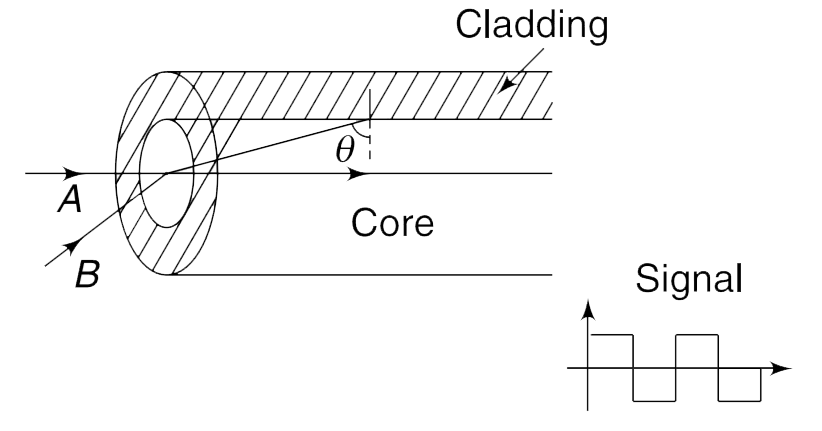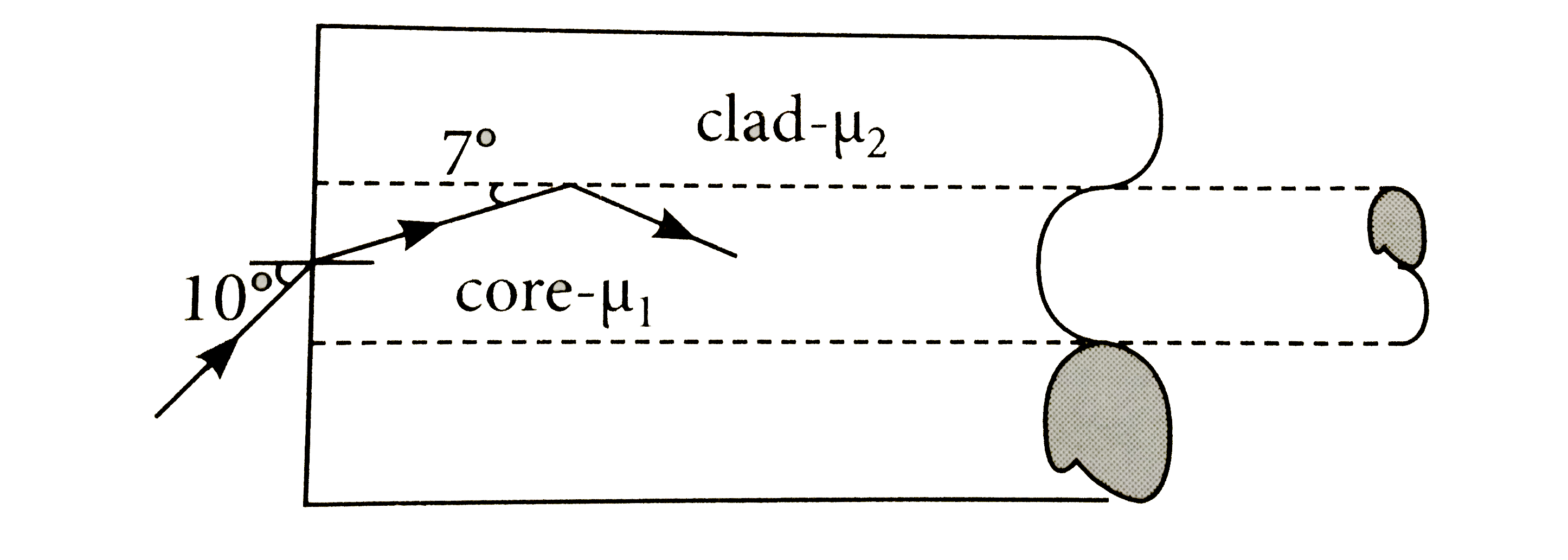A fibre optic cable has a transparent core of refractive index 1.6 and the cladding has a refractive index of 1.5. An optical signal travels along path A and another signal travels along path B such that it strikes the core – cladding interface at an angle of incidence θ that is just greater than the critical angle. Length of the cable is 1500 m.
(a) Find the time difference between the two signals reaching the other end of the cable.
(b) A digital signal shown in the Figure. is transmitted through the cable. Find maximum frequency so that the crest from path A never arrives with a trough from path B at the receiving end of the cable.

The correct Answer is:(a) 0.53μs (b) 0.94MHz
Topper's Solved these Questions
- GEOMETRICAL OPTICSBOOK - ARIHANTCHAPTER - GEOMETRICAL OPTICSEXERCISE - Level 3
9 Videos
- GEOMETRICAL OPTICSBOOK - ARIHANTCHAPTER - GEOMETRICAL OPTICSEXERCISE - Level 3
9 Videos
- ELECTROSTATICSBOOK - ARIHANTCHAPTER - ELECTROSTATICSEXERCISE - Level 3
59 Videos
- MAGNETIC EFFECT OF CURRENTBOOK - ARIHANTCHAPTER - MAGNETIC EFFECT OF CURRENTEXERCISE - Magnetic effect of Current
45 Videos
Similar Questions
A biconvex thin lens is prepared from glass of refractive index μ2=32. The two conducting surfaces have equal radii of 20 cm each. One of the the surface is silvered from outside to make it reflecting. It is placed in a medium of refractive index μ1=53. It acts as a
View SolutionAn optical fibre having core of refractive index √3 and cladding of refractive index 1.5 is kept in air. The maximum angle of acceptance is
View Solution
Knowledge Check
An optical fibre having core of refractive index √3 and cladding of refractive index 1.5 is kept in air. The maximum angle of acceptance is
A60∘B45∘C30∘D15∘In opticle fibres,the refractive index of the core is
Agreater than that of the claddingBequal to that of the claddingCsmaller than that of the claddingDindependent of that of the claddingIn optical fibre refractive index of core is
Aless than R.I of claddingBmore than R.I of claddingCequal to R.I. of claddingDhalf of R.I. of cladding
In opticle fibres,the refractive index of the core is
View SolutionThe glass of optical fibre has a refractive index 1.55 and cladding with another glass of refractive index 1.51. When the surrounding medium is air, the numerical aperture will be
View SolutionRefer figure. Core has refractive index μ1=1.424. The cladding refractive index μ2=1.39. In such a case. Will the light beam propagate?

View SolutionThe glass of optical fibre has a refractive index 1.55 and cladding with another glass of refractive index 1.51. When the surrounding medium is air, the numerical aperture will be
View SolutionRefer figure. Core has refractive index μ1=1.424. The cladding refractive index μ2=1.39. In such a case. Will the light beam propagate?

View Solution
